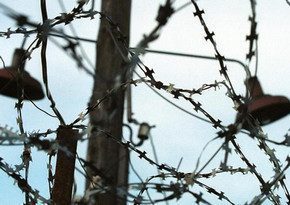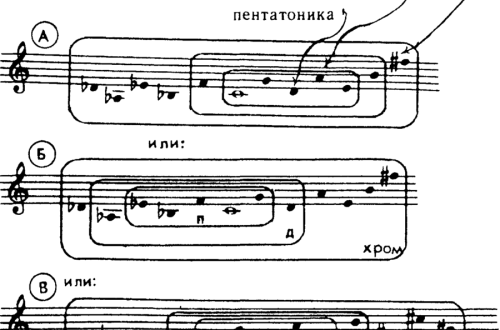
Songs of political prisoners: from Varshavyanka to Kolyma
Contents
 Revolutionaries, “prisoners of conscience”, dissidents, “enemies of the people” – political prisoners have been called as they have over the past few centuries. However, is it really all about the name? After all, a thinking, thoughtful person will almost inevitably be disliked by any government, any regime. As Alexander Solzhenitsyn correctly noted, “the authorities fear not those who are against them, but those who are above them.”
Revolutionaries, “prisoners of conscience”, dissidents, “enemies of the people” – political prisoners have been called as they have over the past few centuries. However, is it really all about the name? After all, a thinking, thoughtful person will almost inevitably be disliked by any government, any regime. As Alexander Solzhenitsyn correctly noted, “the authorities fear not those who are against them, but those who are above them.”
The authorities either deal with dissidents according to the principle of total terror – “the forest is cut down, the chips fly”, or they act selectively, trying to “isolate, but preserve.” And the chosen method of isolation is imprisonment or a camp. There was a time when a lot of interesting people gathered in the camps and zones. There were also poets and musicians among them. This is how the songs of political prisoners began to be born.
And it doesn’t matter that from Poland…
One of the first revolutionary masterpieces of prison origin is the famous “Warshavyanka”. The name is far from accidental – indeed, the original lyrics of the song are of Polish origin and belong to Vaclav Svenicki. He, in turn, relied on the “March of the Zouave” (the so-called French infantrymen who fought in Algeria).
Varshavyanka
The text was translated into Russian by a “professional revolutionary” and Lenin’s comrade-in-arms, Gleb Krzhizhanovsky. This happened while he was in the Butyrka transit prison, in 1897. Six years later, the text was published. The song, as they say, went to the people: it called to fight, to the barricades. It was sung with pleasure until the end of the civil war.
From prison to eternal freedom
The tsarist regime treated the revolutionaries quite liberally: exile to settlement in Siberia, short prison terms, rarely anyone except Narodnaya Volya members and terrorists were hanged or shot. When, after all, political prisoners went to their deaths or saw off their fallen comrades on their last mournful journey, they sang a funeral march “You fell victim in the fatal struggle”. The author of the text is Anton Amosov, who published under the pseudonym Arkady Arkhangelsky. The melodic basis is set by a poem by the blind poet of the 19th century, a contemporary of Pushkin, Ivan Kozlov, “The drum did not beat before the troubled regiment…”. It was set to music by composer A. Varlamov.
You fell victim in the fatal struggle
It is curious that one of the verses refers to the biblical story of King Belshazzar, who did not heed the formidable mystical prediction about the death of both himself and all of Babylon. However, this reminiscence did not bother anyone – after all, further in the text of the song of political prisoners there was a formidable reminder to modern tyrants that their arbitrariness would sooner or later fall, and the people would become “great, powerful, free.” The song was so popular that for a decade and a half, from 1919 to 1932. its melody was set to the chimes of the Spasskaya Tower of the Moscow Kremlin when midnight came.
The song was also popular among political prisoners “Tortured by severe bondage” – crying for a fallen comrade. The reason for its creation was the funeral of student Pavel Chernyshev, who died of tuberculosis in prison, which resulted in a mass demonstration. The author of the poems is considered to be G.A. Machtet, although his authorship was never documented – it was only theoretically justified as probable. There is a legend that this song was sung before the execution by the Young Guard in Krasnodon in the winter of 1942.
Tortured by heavy bondage
When there is nothing to lose…
Songs of political prisoners of the late Stalinist period are, first of all, “I remember that Vanino port” и “Across the Tundra”. The port of Vanino was located on the shores of the Pacific Ocean. It served as a transfer point; trains with prisoners were delivered here and reloaded onto ships. And then – Magadan, Kolyma, Dalstroy and Sevvostlag. Judging by the fact that the Vanino port was put into operation in the summer of 1945, the song was written no earlier than this date.
I remember that Vanino port
Whoever was named as the authors of the text – famous poets Boris Ruchev, Boris Kornilov, Nikolai Zabolotsky, and unknown to the general public Fyodor Demin-Blagoveshchensky, Konstantin Sarakhanov, Grigory Alexandrov. Most likely the authorship of the latter – there is an autograph from 1951. Of course, the song broke away from the author, became folklore and acquired numerous variants of the text. Of course, the text has nothing to do with primitive thieves; before us is poetry of the highest standard.
As for the song “Train Vorkuta-Leningrad” (another name is “Across the Tundra”), its melody is very reminiscent of the tearful, ultra-romantic yard song “The Prosecutor’s Daughter”. Copyright was recently proven and registered by Grigory Shurmak. Escapes from the camps were very rare – the fugitives could not help but understand that they were doomed to death or to a late execution. And, nevertheless, the song poetizes the eternal desire of prisoners for freedom and is imbued with hatred of the guards. Director Eldar Ryazanov put this song into the mouths of the heroes of the film “Promised Heaven”. So the songs of political prisoners continue to exist today.
By tundra, by rail…





